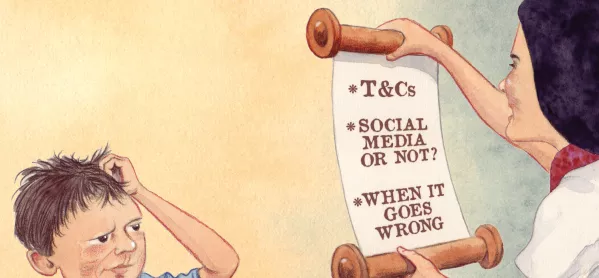I am always encouraged when children’s use of the internet is covered in the mainstream media, but when the year-long study Growing Up Digital was published recently by children’s commissioner Anne Longfield, part of it did annoy me.
It was the call for digital citizenship to be taught to children from the age of 4 that I found irksome, because that makes it sound as if it doesn’t already happen and implies that objectives such as being able to “recognise acceptable/unacceptable behaviour” aren’t already part of the computing curriculum. The study also says that skills such as critiquing online content aren’t taught, which just isn’t true.
For what it’s worth, I don’t think that giving yet more responsibility to schools will help prepare children to navigate the digital world. The focus needs to shift to how children are using social media beyond the classroom, and the role that parents play - or don’t play - in all this.
However, one idea that struck me as interesting was the suggestion of a digital ombudsman for children. It made me wonder: if I took on this role, what might my first steps be?
Terms and conditions
There has been a lot of talk around the impenetrable terms and conditions that children agree to without knowing what they mean. Let’s be honest, how many adults even read T&Cs before agreeing to them, let alone actually understand them all? I once read out some T&Cs for a social media platform to a class and it brought home how difficult they were to interpret.
It would be useful for adults and children alike if companies translated these documents into plain English, and a digital ombudsman could come up with a format for how this should work. A member of the Growing Up Digital panel translated Instagram’s T&Cs and, reportedly, many teenagers were shocked to discover what they were agreeing to.
Social media or not?
It would be helpful for social media platforms to be upfront about the fact that they are social media platforms. It sounds silly, I know, but I’ve encountered several parents who, for example, didn’t know that Musical.ly was a social media platform, not just a video-editing app. A centralised list for parents to refer to would be handy. There’s a lot of information available but wading through it can be off-putting.
When it all goes wrong
It’s been suggested that we adopt the Australian model, where a children’s e-safety commissioner acts as a mediator with a social media company when a parent lodges a complaint.
I have had to help parents submit concerns to social media firms in the past, and you are often left feeling as if your complaint hasn’t even been heard. Having an official body in place to help with this would be welcomed by many and might also encourage parents to become active in their children’s social media use.
It won’t address the worrying way many under-18s behave online but it might be a step forward. We need big ideas to solve these big issues.
Claire Lotriet is a teacher at Henwick Primary School in London. She tweets @OhLottie and blogs at clairelotriet.com




